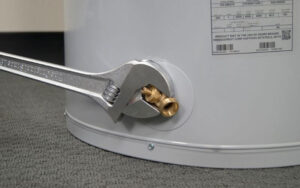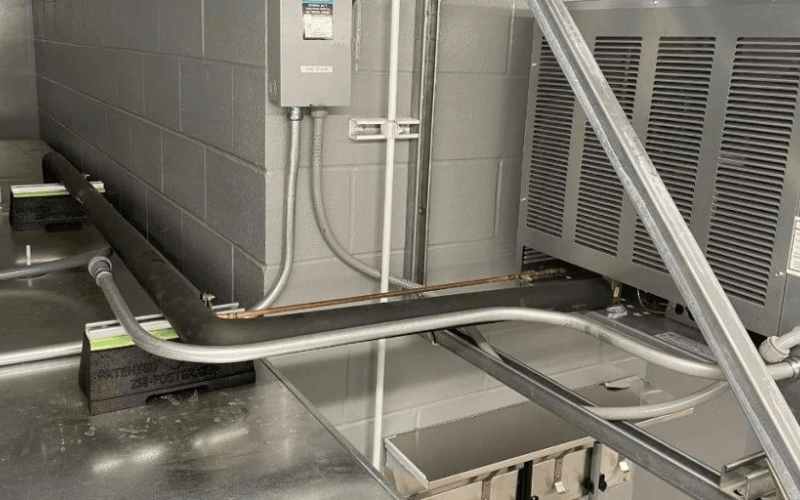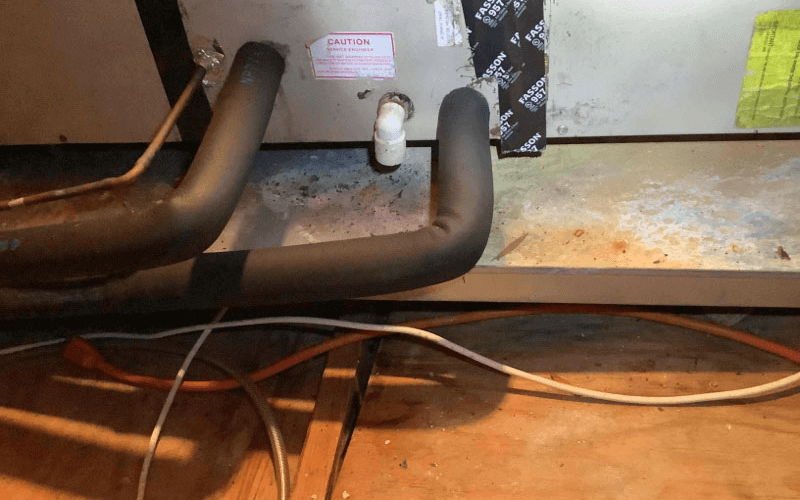How Often Do Water Heaters Explode?
Explosions from Domestic Water Heaters are not uncommon and can be fatal. However, you may be thinking about how frequently your water heater explodes. According to the Insurance Institute for Business & Home Safety, the average Water Heater Lifespan is about ten years. Over 40% had exploded by year 9, and he still has a 15% chance of blowing up the entire basement six years later.
Table of Contents
ToggleGas and electric water heaters can explode, particularly poorly maintained water heaters. You can avoid such disasters if you recognize the signs of a water heater exploding and contact a plumber immediately.
Also check: How Does an Electric Furnace Work?
The Factors That Cause Water Heater Explosions:
A water heater that has a high internal temperature and pressure can explode. A safety mechanism i According to the Insurance Institute for Business & Home Safety, the average Water Heater Lifespan is about ten years old water heaters are set too high, and the thermal expansion of the water causes excessive pressure in the tank.
Debris accumulation can explode, particularly in poorly maintained water heater vessels. Metal part rust or corrosion and interferes with pressure regulation. Defects in other components can result in high temperatures and pressures. Excess pressure is usually allowed to escape from the tank through the system’s temperature and pressure relief valves.
If this component fails, pressure will build up until the tank can no longer hold it. A water heater’s temperatures and a fire in your water heater.
Signs That Your Water Heater is About To Explode:
The system will signal if the temperature and pressure rise too quickly. Contact an emergency plumbing repair service if you notice signs that your water heater is about to explode.
Temperature and Pressure Relief Valve Leak:
The T&P controls the temperature and pressure inside the hot water tank. The system’s temperature and pressure relief valve stent cannot handle the internal tank pressure. The most common cause of water heater explosions is T&P valve failure.
Always Keep The T&P Valve Open:
When the internal pressure reaches the specified setpoint, the normal valve opens to relieve thermal expansion and reduce pressure. Contact an emergency plumbing repair service if you notice signs that your water heater is about to explode. Enter this tank and mix with the water to lower the temperature. When the problematic situation is resolved, the valve closes in any case.
If the T&P valve is always open, there is a problem with constant internal pressure and water temperature, which can explode if the valve fails.
Popping Sounds:
Scale from your water supply will settle on the bottom of your water heater if you do not maintain and clean it regularly. A thick layer of sediment acts as an insulator between the water and the heater, raising the temperature because the heater cannot efficiently heat the feedwater. It pops when water trapped beneath the sediment boils against the heating element.
A popping noise indicates the presence of deposits and the possibility of overheating due to the conditions mentioned above. Deposits also increase the likelihood of the T&P valve failing. Deposits can clog this component and prevent it from opening when high pressure and temperature conditions need to be relieved regularly; the water heater is about to explode.
Also check: How Often Should Furnace Cycle?
Rotten Egg Odor:
Another sign that your water heater may burst is the smell of rotten eggs, which indicates a gas leak. It pops when water trapped beneath the sediment boils against the heating element to gas leaks. A water heater pilot light can ignite the gas, resulting in a large explosion or fire.
Conclusion:
Conditions above the heater can be disastrous. The force of exploding water heater tanks can injure or kill residents, and this extreme system failure can cause significant damage to homes and their plumbing systems. Keep an eye on your water heater for signs of an exploding water heater, and contact a plumber immediately for emergency repairs.
FAQs
What is the frequency of a water heater explosion?
Explosions in water heaters are uncommon, but when they do occur, they can be devastating. Don’t wait for disaster to strike. Here are some warning signs that your water heater is about to explode. A pressure relief valve is typically located on the top side of the heater.
What causes a water heater to blow up?
Anything that causes too much pressure in your hot water systems, such as a faulty anode rod or a buildup of deposits, can cause your water heater to explode. A gas leak can immediately cause your water heater to explode.
How can I tell if my water heater is about to blow up?
A leaking tank, a failed pressure relief valve, cloudy water, popping noises, and a lack of hot water are all signs that your water heater is about to explode. Exploding water heaters can result in death, serious personal injury, and extensive property damage.
Are water heater explosions uncommon?
Explosions from residential water heaters are not uncommon for systems to be fatal. Gas and electric water heaters can explode, particularly poorly maintained water heaters.
How can a water heater be kept from bursting?
Here are three preventative measures to keep your water heater from bursting.
- Every year, flush the tank. If the hot water tank has not been serviced in several years or has never been serviced, it should be done as soon as possible.
- Replace components as soon as they fail.
- Recognize the warning signs.





















